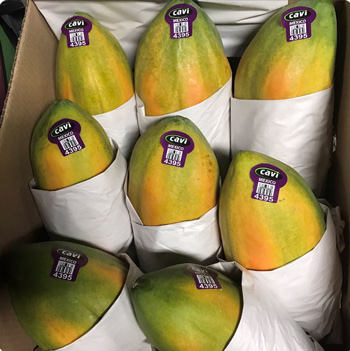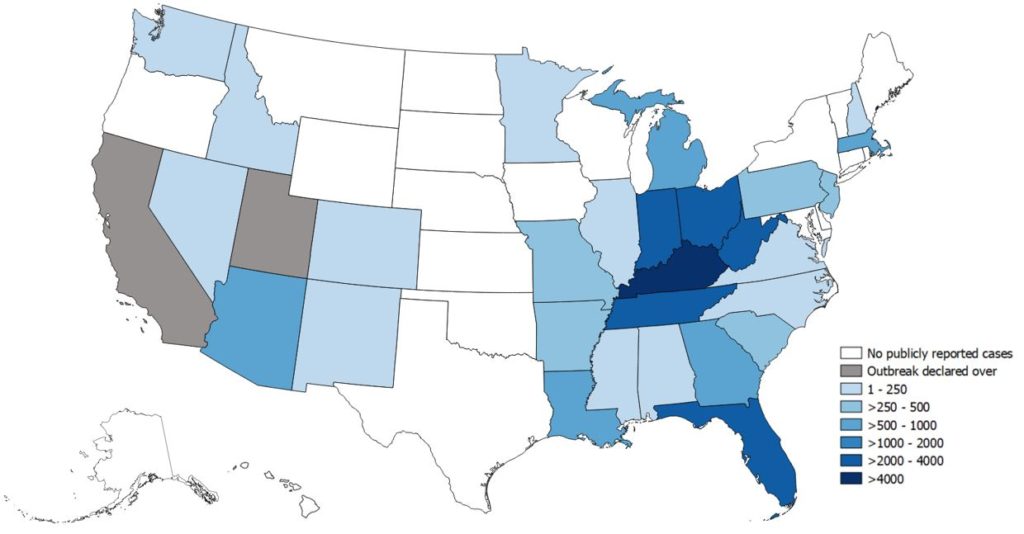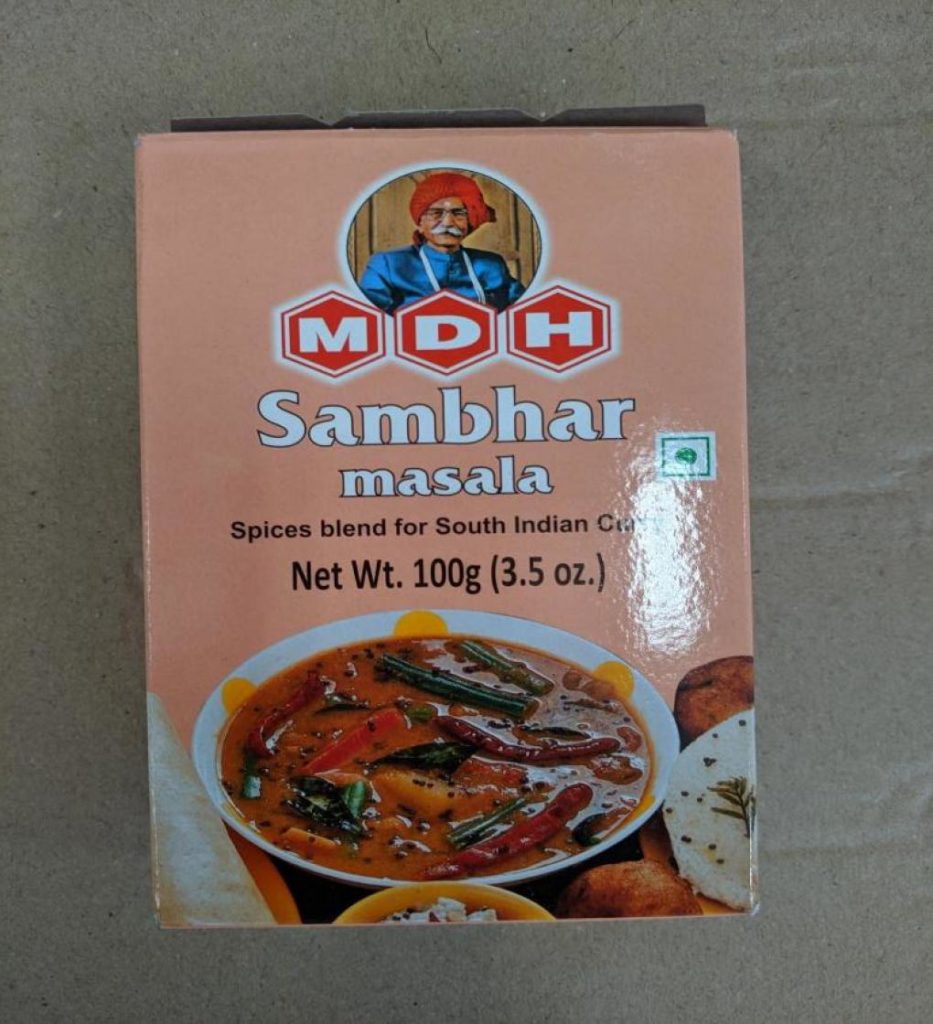According to the CDC, the outbreak of Salmonella Uganda in multistate linked to Cavi Brand whole, fresh papayas appears to be over. The epidemiological and traceback information collected in the investigation confirmed that Agroson’s LLC of Bronx, New York, was the exclusive distributor of the imported papayas that made consumers from this outbreak sick. The FDA issued a statement on August 26, 2019, demanding that the papaya industry improve practices and better protects consumers. The FDA asked Agroson’s LLC, the exclusive distributor of this brand, to conduct a voluntary recall of Cavi brand papayas. Agroson’s LLC refused to initiate a recall. FDA contacted wholesale customers of Agroson’s LLC to ensure the fruit was no longer available for sale, had been discarded, or was not further processed or frozen. Additionally, the FDA issued a warning letter to Agroson’s LLC, the distributor of Cavi brand papayas implicated in this outbreak.
https://www.fda.gov/food/outbreaks-foodborne-illness/salmonella-uganda-linked-cavi-brand-whole-fresh-papayas-june-2019?utm_campaign=Outbreak%20Salmonella%20Uganda%20Linked%20to%20Cavi%20Brand%20Whole%2C%20Fresh%20Papayas&utm_medium=email&utm_source=Eloqua




